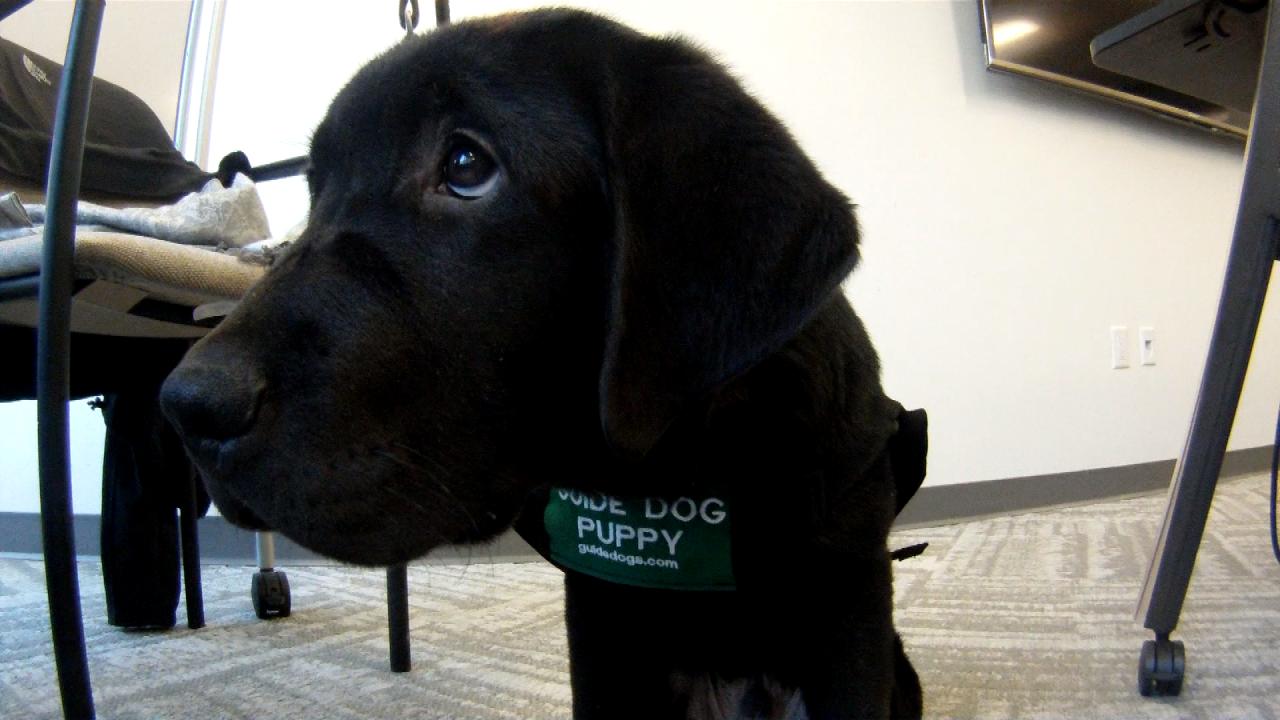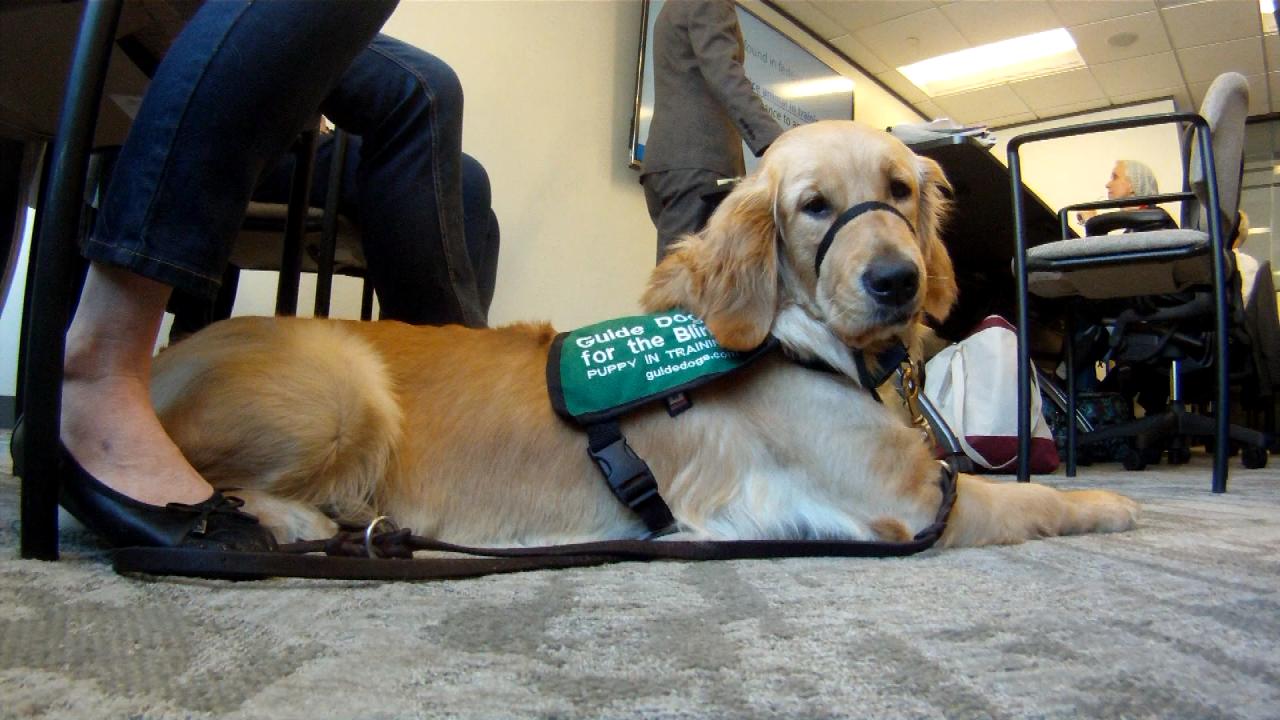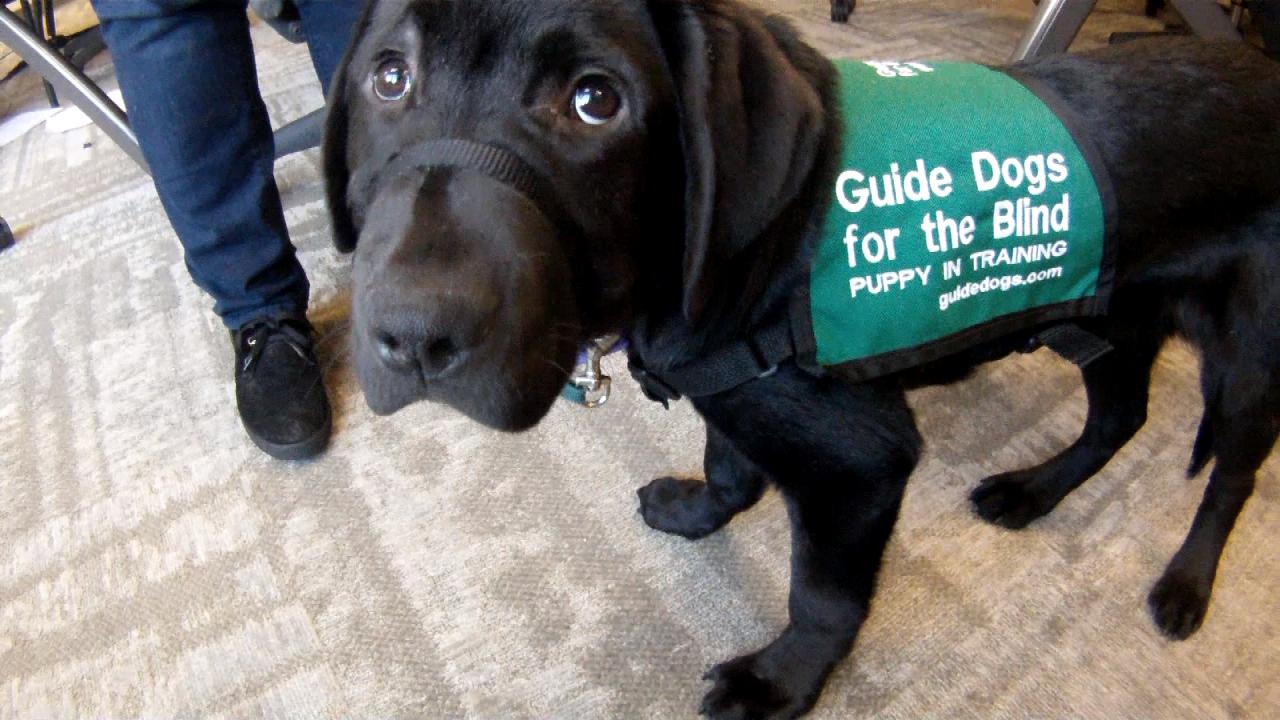Put a group of Texas lawyers in a room and they’ll tell you there are miles of gray area in laws pertaining to service animals.
The session, hosted by the Austin Bar Association’s “Still Loving It” lawyers club, invited a pair of guide dogs in training — and their handlers — to help the group tackle misconceptions and complexities with the laws surrounding service animals and emotional support animals.
First, the definitions. Lawyer Cindy Smiley, who presented at the workshop, said most terms are “mostly misused” by the public.
“The service animal is an animal trained to perform work or tasks for the benefit of a person with a disability,” Smiley said. “The emotional support animal is an animal that provides comfort or support for a person with a disability, but it doesn’t have to have the individualized training to perform that task.”
Smiley said providing emotional support, a sense of well-being, comfort, or companionship is not recognized as work, and therefore earns a different distinction.
Additionally, service animals do not need any sort of certificate, written documentation, or registration to be service animals. A person with a disability may not be asked to verify their animal’s status by producing any kind of paperwork or certification, Smiley said. An animal qualifies as a service animal by being able to “recognize and respond,” and perform a service related to the person’s disability.
People are allowed to train their service animal to perform specific tasks themselves, but generally, professional trainers get ideal, consistent and documented results, according to a handler at Monday’s meeting.
One of the most confusing complexities that can arise is in public, when someone brings an animal into a business, like a restaurant.
“Business owners are [generally] very unsure and unclear about what their rights are,” volunteer puppy raiser Lois Foster, with Guide Dogs for the Blind, said. “When someone comes in with the dog, is it a true service animal that needs — that is protected under federal and state law? Or is it just someone who wants to bring their pet in?”
Foster said some people decide not to do anything about the situation, although sometimes it is necessary to intervene. However, business owners may only ask two questions if the person’s disability is not readily obvious: is the service animal required because of a disability, and what type of service is the animal trained to perform? Anything more than that is illegal, Smiley said.
Though there are limits for the people with the animal as well.
“All dogs can be asked to leave, it doesn’t matter if there a service dog or an emotional support dog or whatever classification, because the dogs are not to be disruptive to the business,” Foster explained. Once the animal disrupts the business operations, it may be asked to leave. However, she said service animals are trained to be “calm and confident” and not to react in a manner that becomes disruptive.
When traveling with service animals or emotional support animals, be mindful that each airline has its own specific rules, generally based off of guidelines in place from the Federal Aviation Administration. For example, a Texas State University student decided to flush her hamster because the airline would not allow it to fly.
The panelists said Texas does have tighter restrictions on penalties for misrepresentation of an animal as a service animal, but advised all Texans to do their research to be prepared for future encounters, whether they are planned or unplanned.































